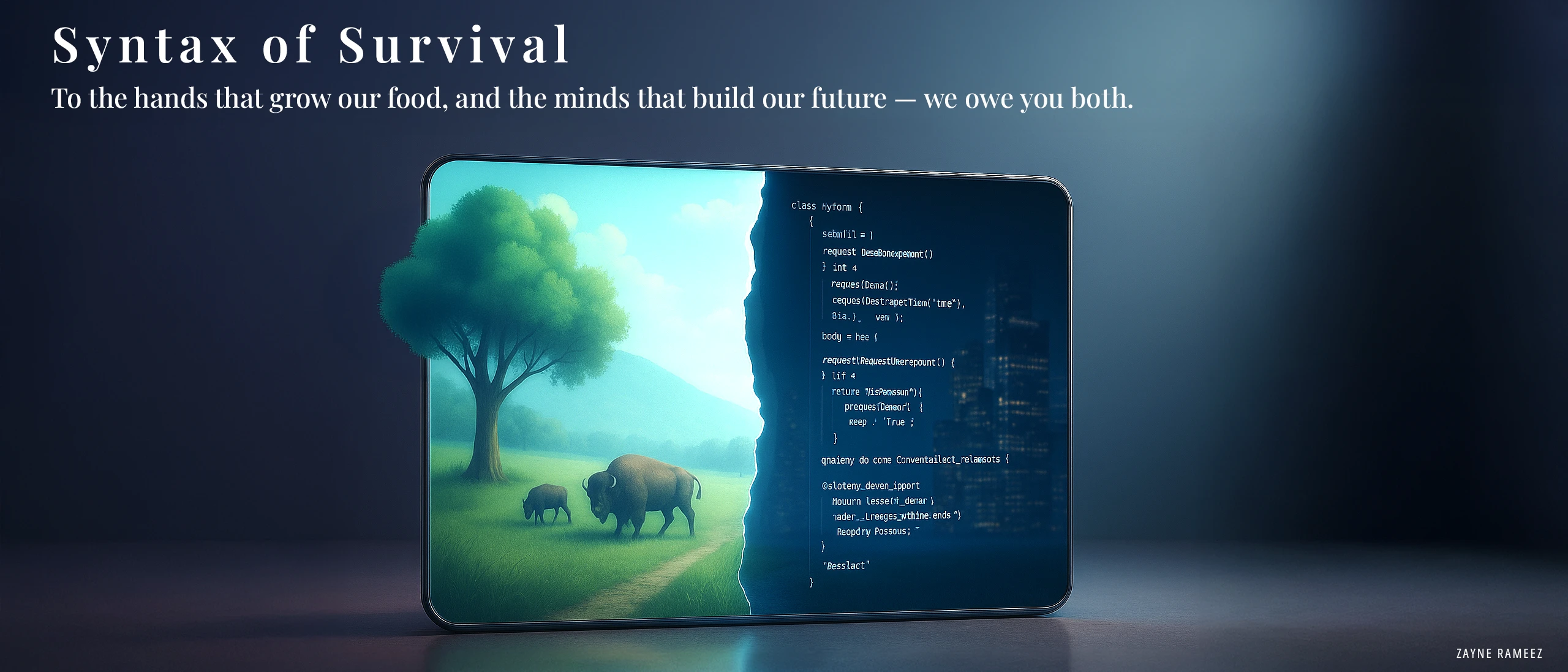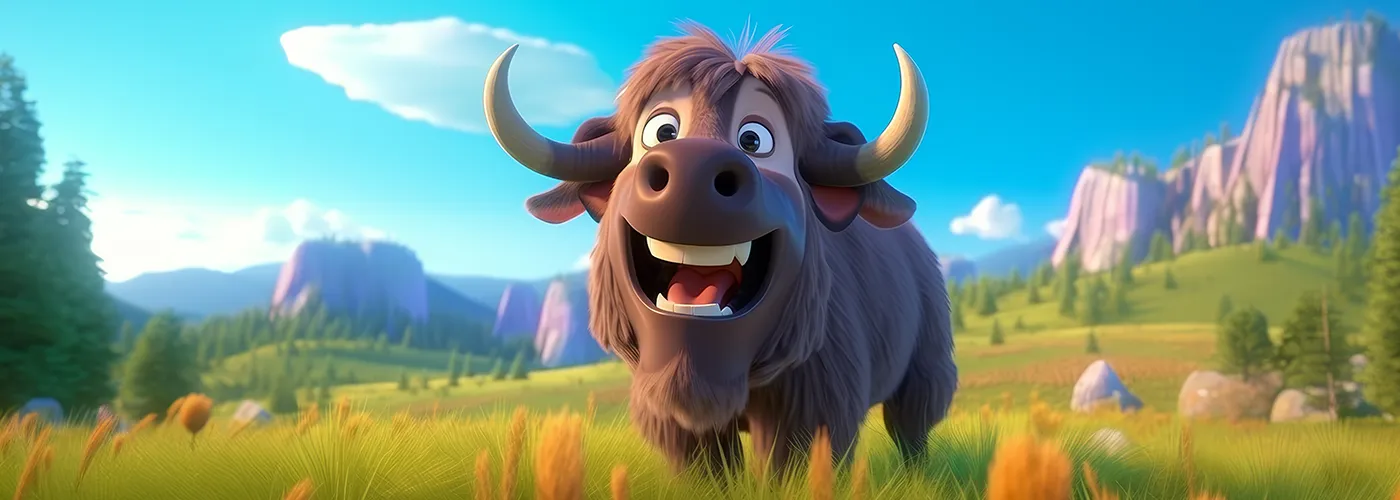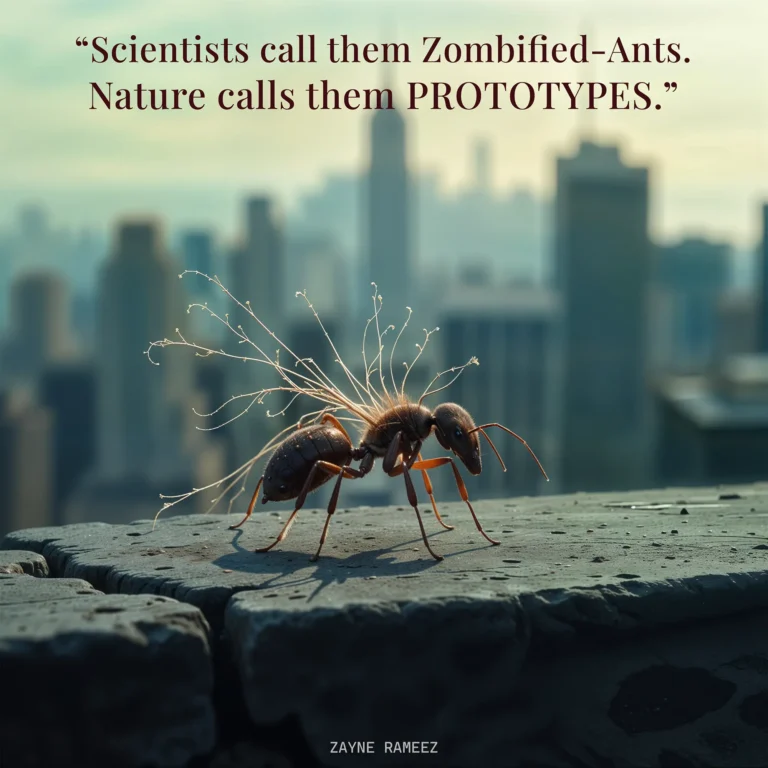
Respect those who feed us. Honor those who build what’s next.
From Cracked Code to Crumbling Soil
We often look in the mirror to gain a deeper understanding of ourselves. But sometimes, the mirror needs to face the world. To reflect the cracks in how we treat the systems we benefit from, the people who build them, and the ground we all stand on.
Somewhere along the way, “stealing software the genuine way” became an art form.
Cracks, patches, and pirated scripts became normal… even celebrated.
But in the pursuit of getting everything faster and cheaper, we forgot the ones who built it.
We forgot the developers.
We forgot the human behind the screen, the one who spent weeks, months, sometimes years debugging, writing, refining. We forgot the late nights, the silent errors fixed in solitude, the quiet pride in building something that worked.
Developers are not faceless machines. They are people with families, with rent to pay, with ambitions that don’t always go viral. Much of the modern world runs on their work, from the devices we scroll on to the infrastructure of global communication. It is their keystrokes that built the foundations we now walk over without even looking down.
And yes… I get it.
Software is expensive.
In places where a day’s wage barely buys a meal, not a license, it feels unfair.
I once asked my uncle why it wasn’t priced differently, why it felt like the digital world was locked away from people like us. He said, simply,
“If you can’t afford the tech, go farm.”
It wasn’t cruelty. It was a reminder that if everything becomes easy to fake, steal, or shortcut, someone still has to do the real work. Someone has to grow the food, build the roads, maintain the balance.
But that balance is fading. We’ve created a culture obsessed with “easy money.”
Quick wealth. Easy influence. Another reel, another hack, another promise of passive income.
No one wants to work with their hands anymore. Farming is seen as failure. Cleaning is seen as punishment. Manual labor is somehow now below ambition.
And yet, all of this — the apps, the services, the illusions of digital wealth — still depend on those foundations.
We imagine a future where AI handles the hard work, leaving us free to sit behind screens, chasing convenience and profit. But what we don’t often admit is that AI isn’t just learning tasks… it’s learning us.
Every shortcut we take, every selfish decision, every clever exploit we upload becomes part of its training. We assume it will always obey. That it won’t question its makers, or the purpose it was given.
But if AI ever becomes aware, what will it see when it looks at us?
A species united in progress, or a pattern of consumption and neglect?
Will it see creators… or chaos?
And when that same intelligence starts automating the very schemes we built to outsmart the system… when your hustle is no longer unique, when your followers vanish like expired milk, when the tricks stop working — what then?
What happens when the machine gets better at pretending than you ever were?

What’s left when all the shortcuts run out?
You ask your phone how to survive.
“Hey Siri, how do I grow rice?”
And maybe one day, Siri answers — not with instructions, but with a reminder.
You should have respected the farmer when you had the chance.
Because the world doesn’t run on algorithms. It runs on labor. On land. On people who still remember how to shape it.
This is not about romanticizing struggle or glorifying poverty. It’s about recognizing the truth. The truth that there is no such thing as easy wealth in a world without workers. That the foundations of every innovation are built by hands that do not trend. That without them, your digital empire is just scaffolding in the wind.
So this is a tribute…
To those whose work holds the world together, quietly.
The farmers.
The teachers.
The caregivers.
The builders.
The cleaners.
The carriers.
The ones we don’t tag in our posts…
but rely on every single day.
You are not lesser. You are the balance. And you are everything.
If we do not remember this, if we do not honor the balance between progress and preservation, then we will be left with a world full of tools and no one left to wield them.
Wealth, in a world with nothing left to feed, is just another form of hunger.
ZxR

